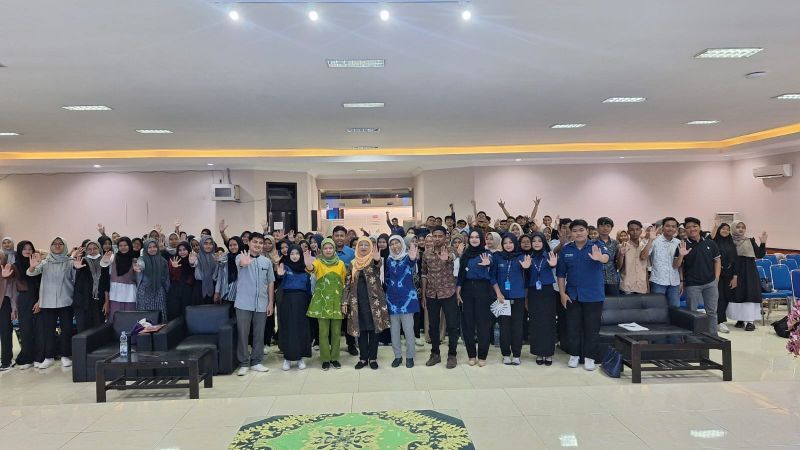Achieving SDG 5, PPKn Fisipol Holds Guest Lecture on Gender Equality with Commissioner of Komnas Perempuan RI

Unesa.ac.id., SURABAYA—The S-1 PPKn Study Program, in collaboration with the PPKn Fisipol UNESA Student Association and the National Commission on Violence Against Women (Komnas Perempuan) of the Republic of Indonesia, organized a Public Lecture titled "Growing with Civic" held at the I6 Srikandi Auditorium on Friday, September 20, 2024.
The event, attended by 161 students from the S-1 PPKn Study Program, was themed "Gender Mainstreaming in 21st Century Education: Realizing Quality Education and Gender Equality SDGs." Its aim was to raise students' awareness and understanding of gender issues, particularly in the context of education, as a foundation for shaping their character and comprehension.
Alimatul Qibtiyah, a professor and Commissioner of Komnas Perempuan RI, was present as a speaker. She explained the importance of understanding gender in the context of 21st-century education. According to her, quality education is not only seen from an academic perspective but also from how it can support gender equality and combat stereotypes.
Gender stereotypes are general views or assumptions about the characteristics, roles, and responsibilities attributed to men and women. The professor from UIN Sunan Kalijaga revealed that these stereotypes often result in injustice, both in education and in other social aspects of life.
Many people believe that the differences in roles, positions, and responsibilities of men and women are based on needs, opportunities, commitments, and local cultural propriety. Women are naturally more trained to endure pain than men. This view is clearly unfair and can limit individual potential.
One way to overcome the stereotypes that have been built in society is through gender mainstreaming. Gender mainstreaming is the process of integrating a gender perspective into all aspects of policies, programs, and activities.
She emphasized the importance of gender mainstreaming in education, where every student, both male and female, should have equal opportunities to learn and develop.
"Quality education must be able to promote gender equality so that all students feel valued and supported, regardless of their gender," she said. "Through gender mainstreaming, an inclusive and fair learning environment will be created," she added.[]
***
Reporter: Fatimah Najmus Shofa (FBS)
Editor: @zam*
Photo: UNESA Public Relations Team
Share It On: